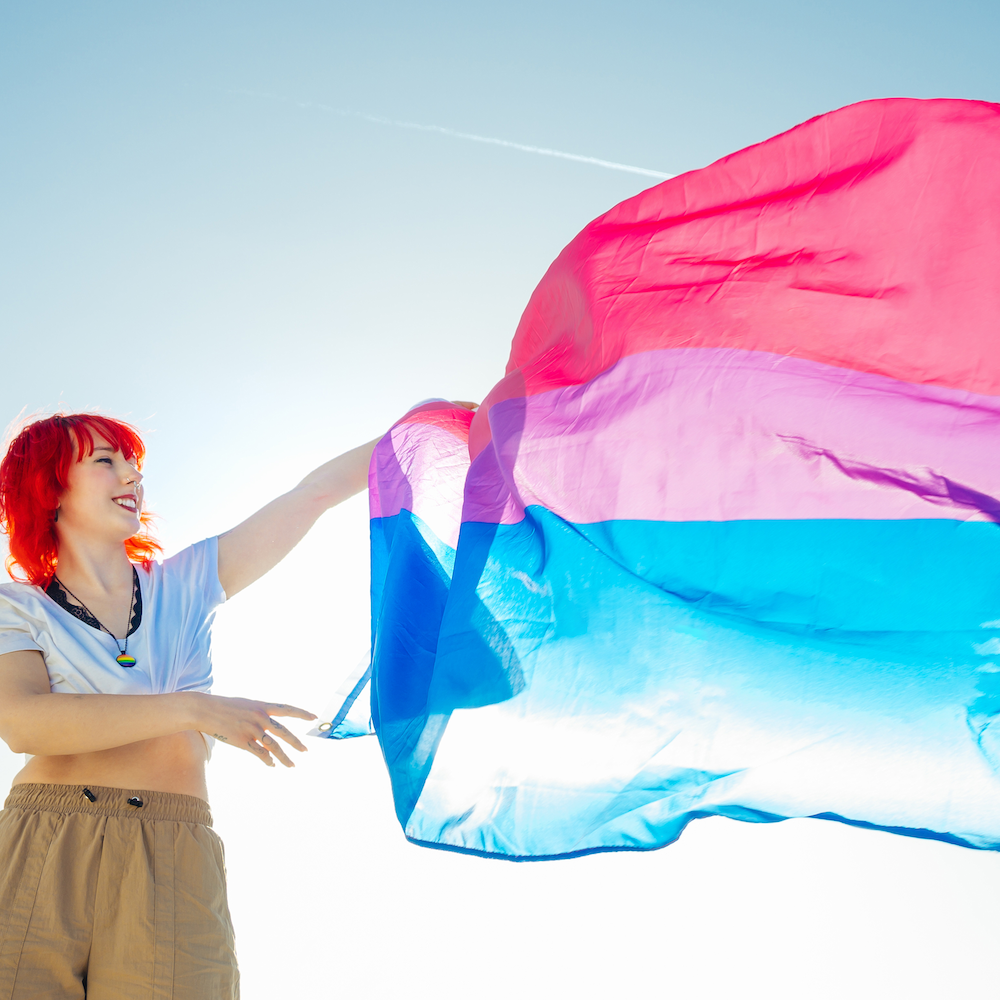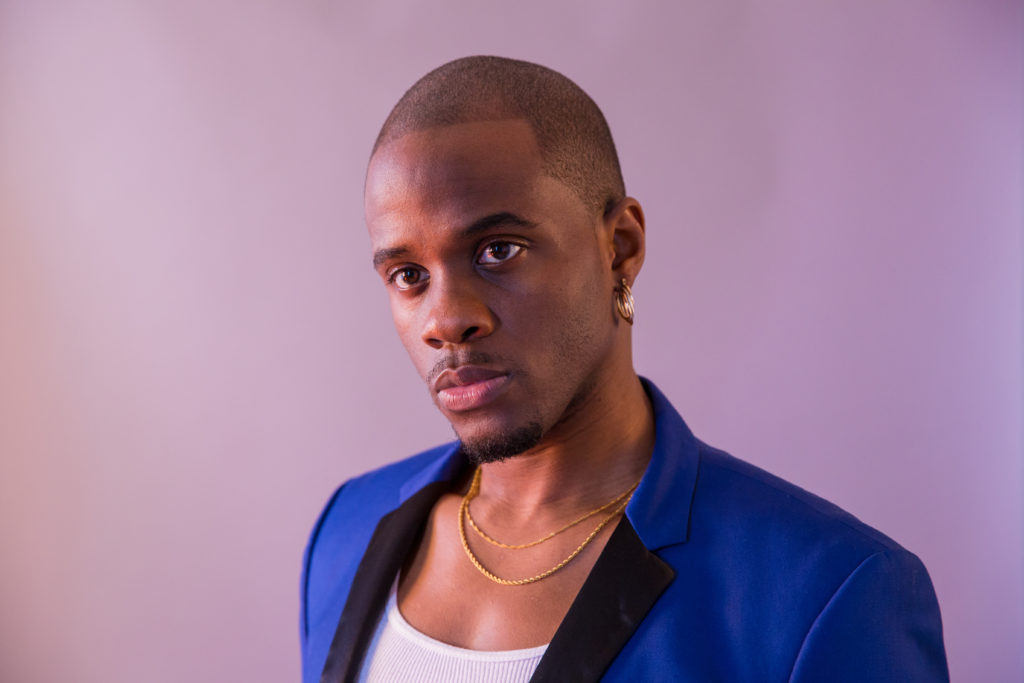Bisexuality+ and Christianity

Can Bisexual+ People be Christian?
You may have heard that Christians can’t identify as bi+ or that being attracted to more than one gender is a sin.
The reality is that there are many people around the world who identify as both bi+ and Christian. Different sects and denominations of Christianity believe varying things, especially when it comes to sexuality.
Get in touch with your own moral compass. Ask yourself questions about what you believe…as opposed to what your community, family, or church believes.
Tips on Navigating Faith and Sexuality
Explore various Christian beliefs about sexuality.
Get in touch with your own moral compass. Ask yourself questions about what you believe about love, relationships, gender, desire, and sex; as opposed to what your community, family, or church believes.
Learn from from other LGBTQ+ people who come from a Christian context through articles, podcasts, and meetups.
Tips on Coming Out

If you’re ready to come out, it helps to start with someone you already suspect will be affirming.
- Ask general questions to gauge how open-minded and potentially supportive they’d be (e.g. “What do you think about that actor who came out as pan?”).
- Consider your personal safety. How prepared are you (emotionally and financially) for worst-case scenarios?
- Know your boundaries and don’t be afraid to enforce them (e.g. “My sexuality isn’t up for debate and if you keep arguing, I’ll walk away”).
- If you’re thinking of coming out to your church, see if they publish their official stance on LGBTQ+ identities on their website first.
Just because many people come out doesn’t mean everyone has to. You are under no obligation to disclose your sexuality to anyone. See more tips on coming out at biresource.org/coming-out-as-bi
Recognizing Abuse or Rejection
Faith communities, especially ones that believe that any LGBTQ+ identity is a severe sin in the moral hierarchy, might reject or mistreat their bi+ members. This behavior may be so normalized to us that we might not immediately recognize it. Examples include:
- Being verbally harassed or outed by someone in your faith community to leadership or to the congregation
- Someone trying to change your sexuality through prayer sessions, counseling, conversion therapy, or even exorcisms
- Folks making constant comments about your “sinful nature,” God’s displeasure, or fixating on your “spiritual health” more than anyone else’s
- Being forced to leave your congregation or shunned by members of your family or faith community
Even if you’ve never experienced any of the above, receiving religious-based messages that LGBTQ+ people are immoral or less-than can still impact us. Do you ever struggle with:
- Feeling ashamed, guilty, or dirty with regards to your sexuality?
- Feeling like you should only date the “opposite” gender?
- Forming healthy relationships or friendships with other LGBTQ+ people?
- Believing that when something bad happens, it was because of your sexuality?
- Feeling uncomfortable or experiencing panic attacks when attending religious ceremonies or functions?
If you are struggling, remember that you are not alone, that there is always hope, and that many resources and support groups exist that can help you heal and get help.
If you are currently experiencing abuse, contact the LGBT National Help Center hotline at 888-843-4564. More help is listed in the Additional Resources section.
Leaving Christianity
If you start to feel that a Christian context isn’t healthy or authentic for you as a bi+ person, you may choose to leave your church, denomination, or even Christianity itself, and that is understandable. This transition can be very difficult, or cause feelings of loss, pain, or guilt, because faith communities are often very tight-knit. Your faith may be so completely entwined with other aspects of your identity, especially an ethnic or cultural identity, that it can feel difficult or even impossible to separate.
- Call on affirming friends or family that can support you in making this transition.
- Engage with the parts of your religion that added something good to your life as you leave behind the parts that are damaging.
- Look for support groups, online communities, or forums where you can talk to others who have left Christianity. (Particularly ones with LGBTQ people or people that share your cultural identity.)
Question paternalism, condescension, and harmful behaviors disguised as love, which may hurt your self- esteem. Focus on the truth: that you are good, that you are not broken, and that your uniqueness as a bi+ person is beautiful.
From the Contributors
J.R. Yussuf


After I had publicly posted a coming out letter I had written to my Christian family, I suddenly started getting all these messages from people I’d never met before. The story was the same: “I’m bi, I’m Christian, and I don’t know what to do.” I started writing because I saw a need in my community that just wasn’t being met by what was currently out there.
There are many resources that tackle Christian homophobia, but very few that name or address Christian [bi-antagonism]. Trying to navigate Christianity as a bi+ person is a completely unique experience that often comes with unique questions and struggles. We as a community deserve to have a resource that can speak to our experiences.
Rachel Siden
Additional Resources
Mental Health Care
The Trevor Project Hotline: 1-866-488-7386
thetrevorproject.org
LGBT National Help Center Hotline: 888-843-4564
glbtnationalhelpcenter.org
Religious Trauma Syndrome
journeyfree.org/rts/
Finding an Affirming Community
Church Clarity
churchclarity.org
GayChurch.Org
gaychurch.org/find_a_church/
QChristian Fellowship
qchristian.org
LGBTQ Theology
Queer Theology (Resources and Podcast)
queertheology.com
Believe Out Loud
believeoutloud.com